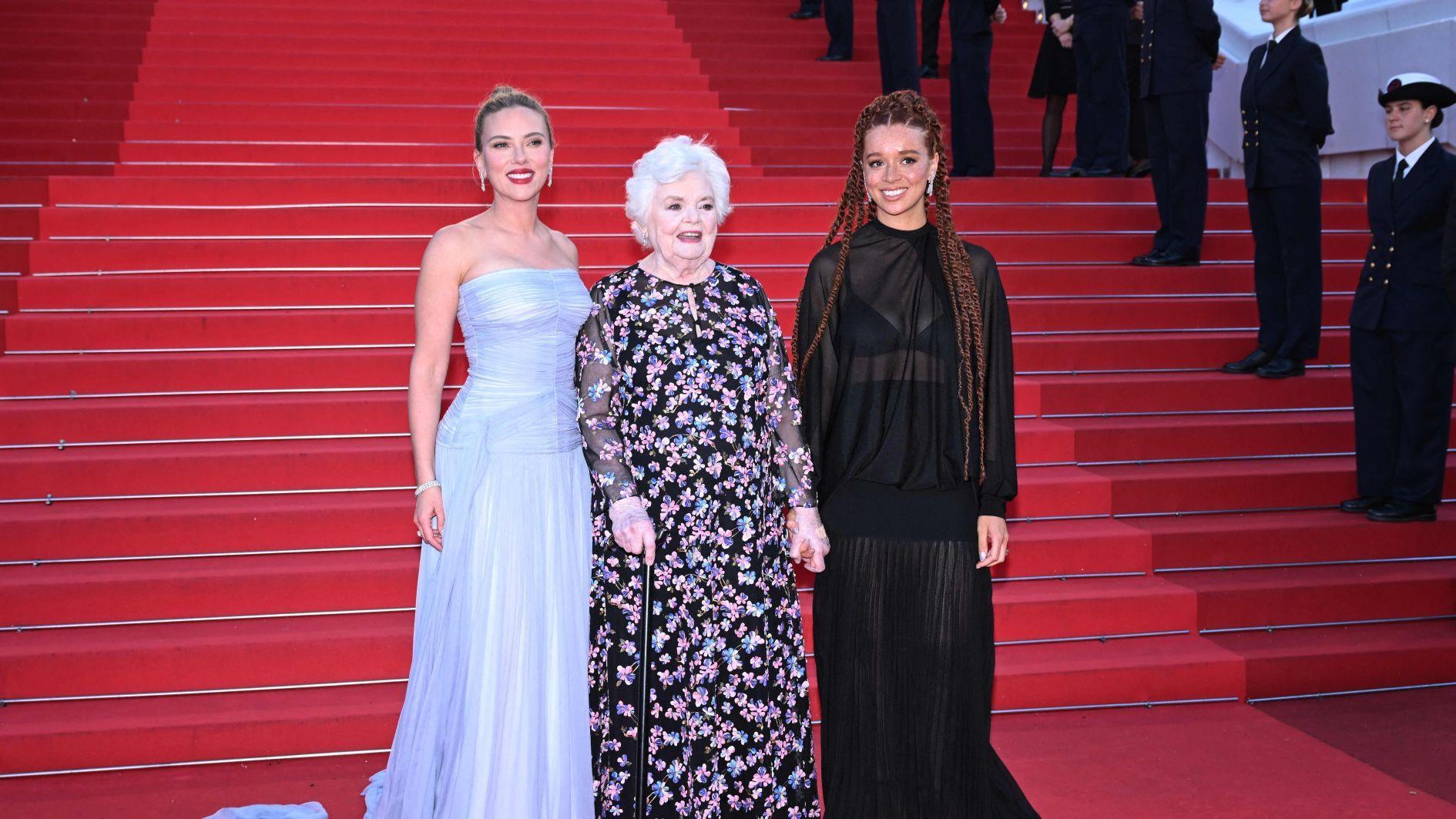
Scarlett Johansson faced some tough initial reviews for her debut film as a director after it premiered in front of a VIP-packed crowd at the Cannes Film Festival on May 20.
Actors heading behind the camera is something of a trend in Cannes this year, with "Twilight" star Kristen Stewart and British actor Harris Dickinson also showcasing their first features.
Johansson appears to have found the transition more difficult than her contemporaries, with several critics' views on "Eleanor the Great" likely to make difficult reading for one of Hollywood's most bankable stars.
Film bible Variety called it "an unconvincing crowd-pleaser," The Hollywood Reporter said it was "wobbly" and Britain's Guardian newspaper critic called it "frankly odd" in a two-star review.
Screen was more positive, however, saying online "streamers should come calling," while The Times in London said it had "the jackpot combination of being tear-inducing and laugh-out-loud funny."
Lead actress June Squibb, 95, won almost universal praise for her turn as a grief-stricken retiree who moves to New York and adopts the personal story of her deceased best friend who survived the Holocaust.
"It's a film about many things: it's about friendship, it's about grief, it's about forgiveness. And I think those are all themes that we can use a lot more of these days," Johansson said after the premiere.
Johansson's movie is in the running for prizes in the "Certain Regard" secondary section at Cannes for up-and-coming directors that also includes Stewart's and Dickinson's films this year.
Dickinson, the 28-year-old star of "Babygirl," asked the press to be "gentle" as he unveiled "Urchin," a touching film about a rough sleeper in London.
"It's my first film so if you don't like it, break it to me nicely,"
he said before the premiere on May 17.
Initial reviews have been positive, with his social-realist debut said to have echoes of the work of veteran British director Mike Leigh, a past winner of Cannes' top prize.
Actors generally have a spotty record when it comes to directing, with Oscar-winning Clint Eastwood one of a small band to have convinced when calling the shots on set.
Greta Gerwig, who broke through as an actress before hitting the directorial big time with 2023 hit "Barbie," has also clocked up a string of hits.
Australian screen great Nicole Kidman lamented on May 18 how the number of women directing major box office successes is still "incredibly low."
'Being a woman is a violent experience'
Stewart might be one to watch for the future, judging by the rapturous reception to her debut, "The Chronology of Water," a searing examination of child sex abuse.
"I can't wait to make 10 more movies," she told AFP.
Rolling Stone magazine said the 35-year-old has "accomplished what she set out to do, with honors."
Nor can film critics judging from the rave reviews of "The Chronology of Water," her startling take on the American swimmer Lidia Yuknavitch's visceral memoir of surviving abuse as a child.
All the producers who Stewart said passed on her script, saying its subject matter made it "really unattractive" to audiences, must now be crying into their champagne.
The fact that she has got such notices with what is normally a no-no subject in Hollywood — and with an avant-garde approach to the storytelling — is remarkable.
"I definitely don't consider myself a part of the entertainment industry," said the "Twilight" saga star, dressed head to toe in Chanel.
Stewart has long been obsessed with the story and with Yuknavitch's writing, and fought for years to make the movie her way.
"I had just never read a book like that that is screaming out to be a movie, that needs to be moving, that needs to be a living thing," she told AFP.
That Yuknavitch was "able to take really ugly things, process them, and put out something that you can live with, something that actually has joy" is awe-inspiring, she added.
"The reason I really wanted to make the movie is because I thought it was hilarious in such a giddy and excited way, like we were telling secrets. I think the book is a total lifeboat," said Stewart, who also wrote the screenplay.
"Being a woman is a really violent experience," Stewart told AFP, "even if you don't have the sort of extreme experience that we depict in the film or that Lidia endured and came out of beautifully."
Stewart insisted there were no autobiographical parallels per se that drew her to the original book.